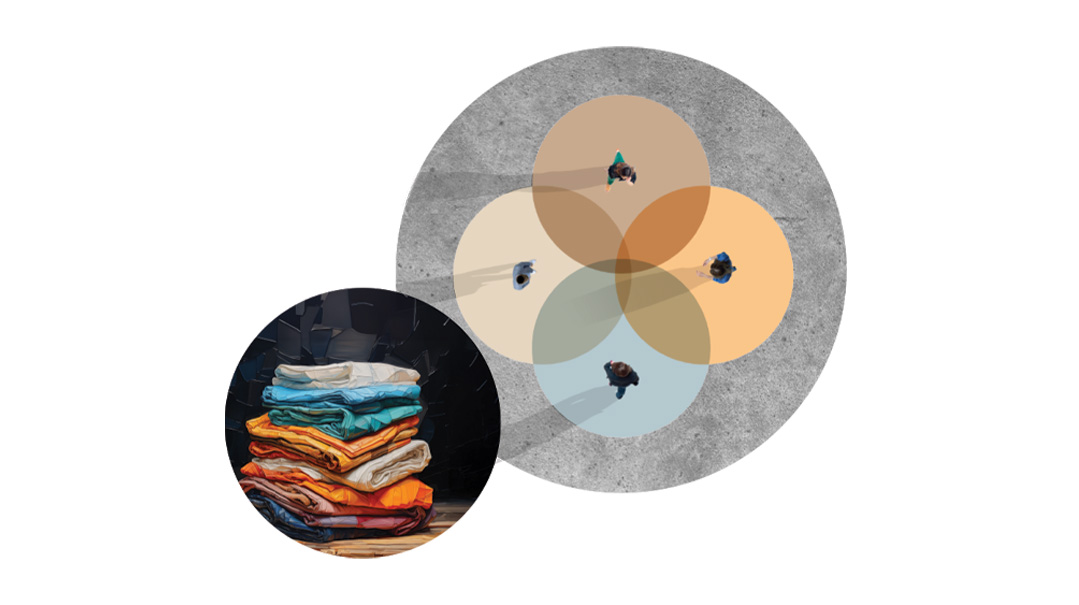Family First Inbox: Issue 874

“I ‘accidentally’ left my sheitel in the car, so that over Shabbos, I was forced to wear a tichel”

We’re in This Together [Inbox / Issue 872]
To my fellow traveler on the infertility road:
You wrote an Inbox letter in response to a woman who said that she wished she could tell her mother-in-law that “her son is the one with the problem,” telling her that most couples do not have this attitude, but focus on oneness and view any problem or treatment as a shared issue.
Infertility has taken us down the male-factor route. As a couple, we know that this isn’t his problem, it’s ours, and we’re in this together. However, the world at large assumes that when a couple is struggling to have children, there must be something off with the woman’s biology. And when “My mother-in-law recently called me and nicely suggested that I go on this fertility diet...,” it becomes very tempting to tell my mother-in-law that “it’s her son who has the problem and not me.” While we know that this is our Heaven-sent “gift I wouldn’t wish upon anyone,” the world doesn’t know to see it that way.
With much love,
A Wife
It Doesn’t Work [Much Ado About Stuff / Issue 871]
In the roundtable discussion about kids and materialism, one mother said her daughter had social problems, and she made sure she dressed really nicely to give her an advantage. As a teacher, a few mothers have told me straight out that they dress their daughters this way to give them a “boost” to overcome some difficulty. Here’s the problem: It doesn’t work. If anything, it makes it harder for a child to develop self-esteem because she’s learning that her worth depends on externalities.
Name Withheld
Clarifying a Point [Much Ado About Stuff / Issue 871]
After reading the roundtable discussion, I wanted to comment on a point one of the panelists made — about how kids need to hear the word no.
I’m a big believer in respecting kids as the guiding force in their own lives and letting everything else fall into place around that. When a kid asks for something, it’s because something inside of them really needs it.
That said, another thing I think about a lot with parenting is containment. I think kids are begging to be contained, whether it’s because they want their parents to rein in their out-of-control behavior or they wish their parents would say no to their lavish requests as a way to ground them. A contained kid is a kid who feels safe. They aren’t running the show, their parents are, and their parents are making decisions based on what they truly feel is good for their kids. If brand names (or whatever the gashmiyus of the day is) isn’t something their family believes in, then parents don’t have to feel afraid to say no to their kids.
I do think parents should go the extra mile to try to make their kids comfortable, and they should understand that today’s times are different, and we should bend ourselves to give more. But I really don’t think we have to say yes because the rest of the class has something we really, really don’t believe in.
Once you make a decision to do that, make sure to overcompensate with extra bonding time and extra love and attention!
Aviva
Crowning Achievement [Courage and Conviction / Issue 871]
I loved the story by Aliza Hirsch, describing her decision to wear a tichel exclusively. I related so much to her struggle. My husband also expressed an interest in me wearing a head covering in accordance with all opinions, and I also told him that doing that isn’t for me. But as the years went by, and I studied more about this topic, I recognized that the main challenge for me was more about what others would say, and that I, too, wanted to make the switch.
At the first family simchah I was invited to while still toying with this idea, I “accidentally” left my sheitel in the car, so that over Shabbos, I was forced to wear a tichel. It’s been more than seven years since then, and although there have been moments when I felt out of place, especially when people stared (more at the beginning of my journey), for the most part, I’m just grateful that I feel tzniyusdig and bacheint. I also received tons of positive feedback, and from the most unlikely sources, which I took as messages from Hashem.
For all of us, when we see someone taking on a hiddur/chumrah in tzniyus, let’s work on acknowledging the challenge and complimenting them, and certainly not disparaging or criticizing them. This will help all of Klal Yisrael feel free to grow in ruchniyus, which helps all of us.
Liba Rabinowitz
(Originally featured in Family First, Issue 874)
Oops! We could not locate your form.


